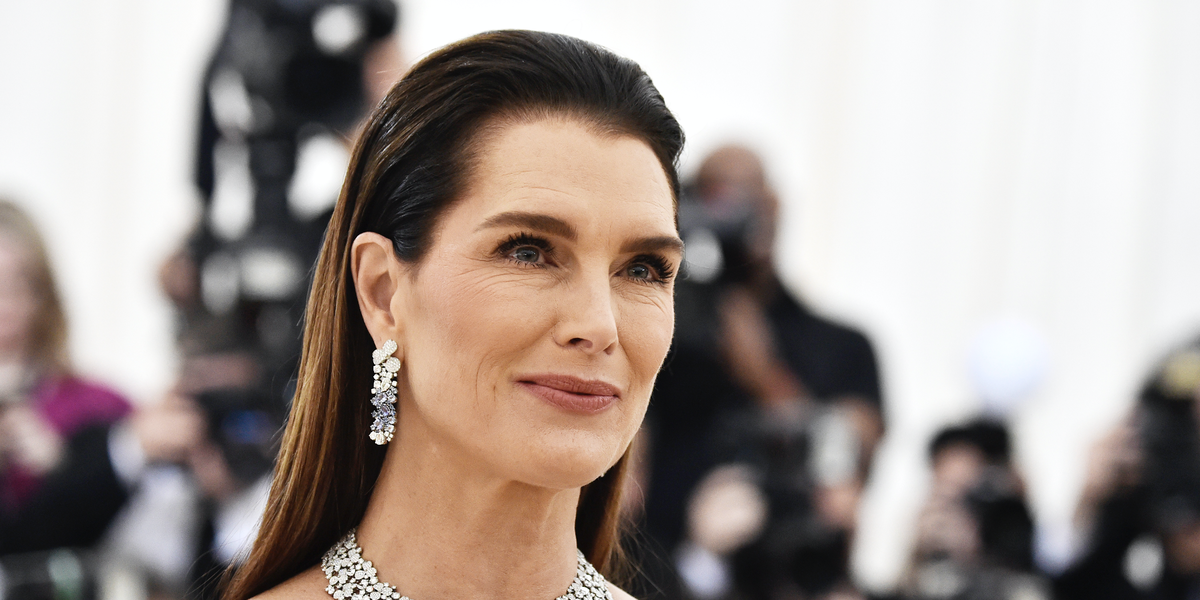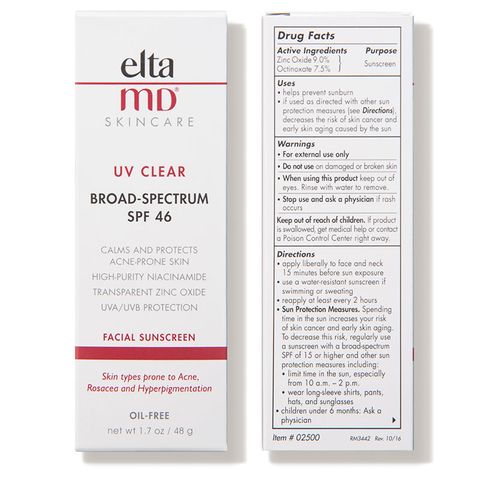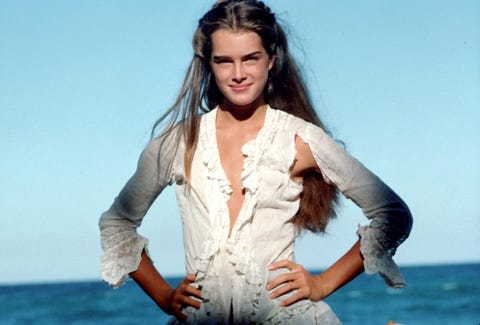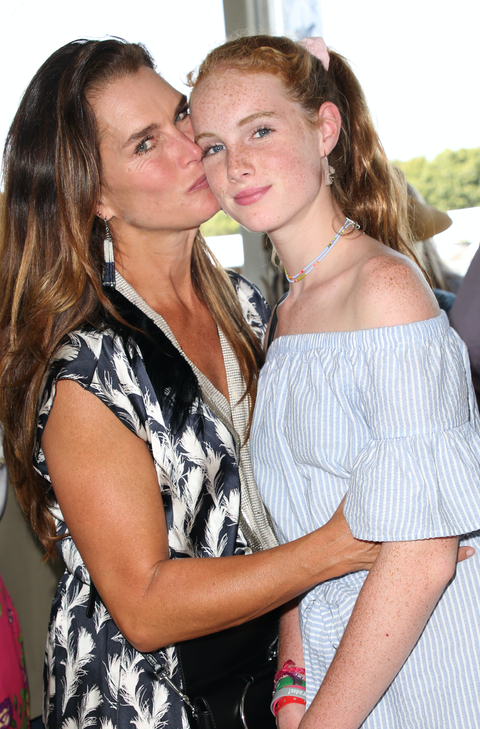Products You May Like
For Skin Cancer Awareness Month, ELLE.com chatted with Brooke Shields about how her diagnosis of pre-cancerous cells led her to change her relationship with sunscreen. Below, the actress opens up her childhood sun philosophy and how she’s rewriting the narrative with her kids, in her own words.
At an annual routine check-up with my doctor, I was diagnosed with Solar Keratosis. [Solar Keratosis–also known as Actinic Keratosis–is the most common precancerous diagnosis, which is caused by long-term exposure to UV rays, per Skincancer.org ] Initially, my doctor had to remove cells from my lips twice to determine the diagnosis. At first, we tried going a conservative route and scrapped cells from a part of my lip. But as a little came back, I had to do a slightly more invasive procedure that would go into deeper layers of my skin. The test came back as a pre-cancer diagnosis. A diagnosis left untreated can turn into a type of skin cancer.
The shocking thing to me is I am still discovering little spots that have to be checked. The spots are results from 30-40 years ago. Thank God we are still able to address this, but the idea of preventive skincare is so important.
To tell the truth, I learned much later about the importance of annual check-ups. I am from an era where we would put skin oil on our skin and bake in the sun. I come from a generation that was never educated on the seriousness of skin cancer. Even though we were young, we did not understand that we were setting up the long-term, severe skin cancer diagnosis.
As a young girl, I never used sunscreen. We did not use sunscreen in high school because it would prevent us from getting the sun-kissed look that we were all going for.
So, I was never an avid sunscreen user. The irony is my mother never really enjoyed the sun; she was uncomfortable in the sun. She never knew the importance of skin cancer and that it is one the most common types of cancer in the United States. I really was shockingly and admittedly embarrassingly ignorant to it. I thought, ‘I’m not going to get cancer from this, come on. And I think that what was so shocking because I’ve always thought I’ve taken care of my skin; keep it clean, hydrated, all the things that you believe you are doing correctly. But, no one talked about skin cancer and using sunscreen. I mean, the most shocking thing to me about the diagnosis was that it was resulting possibly 40 years later. So the damage that I had done then that I thought I was invincible to is affecting me now. I consider myself lucky.
I do use sunscreen now, every day–even in the winter. I’m a long-time user of the Elta sunscreen line. I always apply in the morning and one time during the day. I even use a thin layer before putting it on my foundation.
Now, with my children, using sunscreen is a fight. I’ve tried to scare them into using more sunscreen, but they think they’re invincible. Being Italian, I tend to get darker in the sun, whereas my children are predominately Irish and more fair. I have to fight that and try to bribe them into wearing more sunscreen. “I’ll buy you something really nice, but I need you always to include sunscreen,” I’d say.
One misconception that people have about using sunscreen is that they think they only need to wear it on the summer sunny days. But the sun damage is undeniable. There is this sort of fight between needing Vitamin D and still protecting yourself from the damaging rays. Sunscreen can save your skin and spare you from future damage.
From my experience, I want to spread awareness that the damaging effects of the sun are real. Nobody’s exempt from this. And that’s not to say that you still can’t get vitamin D or you can’t be out in the sun. But, if you really want to fully enjoy the activities that we all are dying to get back to, protect your skin and teach your kids. Teach people the damaging effects. Prepare and take care of your skin. It shouldn’t be a chore. It should be looked at as a part of your beauty routine.
This content is created and maintained by a third party, and imported onto this page to help users provide their email addresses. You may be able to find more information about this and similar content at piano.io



